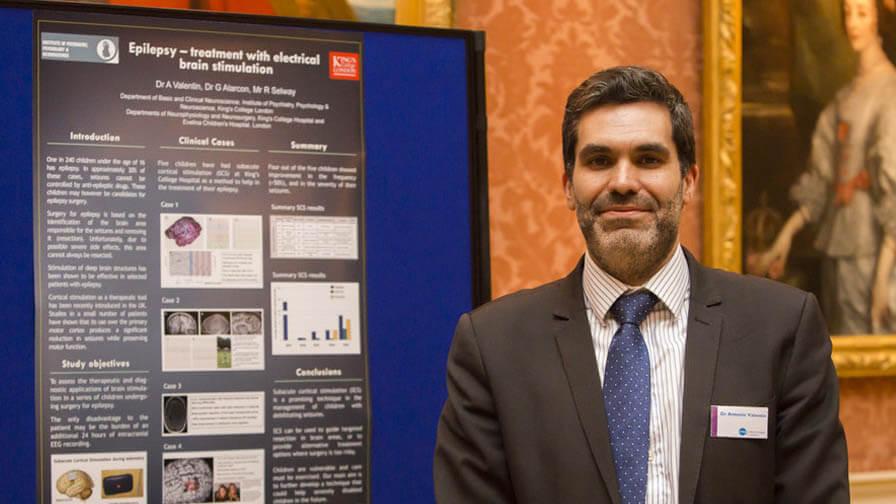
Around 70,000 children and teenagers aged 18 and under have epilepsy in the UK. Sadly, medication doesn’t work for up to one third of these young people and other ways of treating epilepsy, such as surgery, are not always effective.
Dr Antonio Valentin, of King’s College London, has developed a new way to treat children whose epilepsy originates in localised areas of their brain (focal epilepsy), which involves electrical stimulation of the brain.
It involves suppressing the area of the brain which triggers the seizures by stimulating very specific parts of the brain (using cortical and deep brain stimulation) with electrodes placed under the skull.
This technique has been used to treat 12 children in two hospitals. One of these children who had to use a wheelchair before the procedure was able to walk and run again and had fewer seizures.
It is estimated up to 30 children a year could be treated in this way to reduce their seizures and improve their quality of life. Dr Valentin is planning to run a larger trial to prove this technique works for children with severe epilepsy.
The study was jointly funded by Action Medical Research and Great Ormond Street Hospital Children's Charity.

